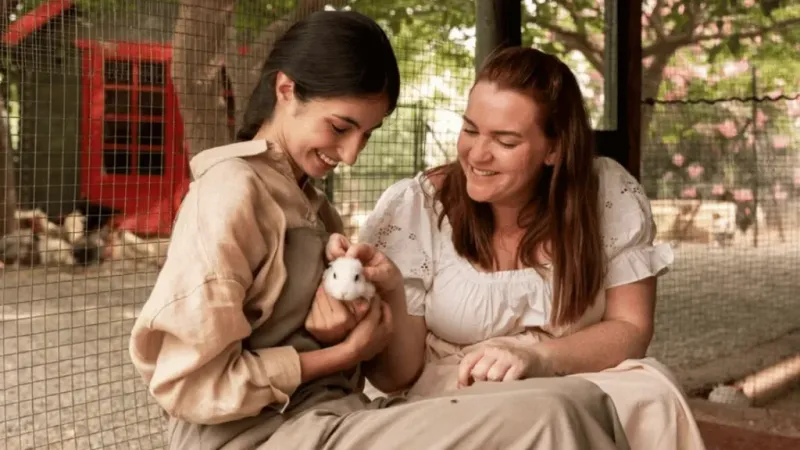When adult children keep their distance, parents often blame themselves. But the truth is, many factors beyond your parenting influence how close your grown kids stay.
Understanding these reasons can bring peace of mind and help you respond with compassion rather than hurt feelings. Here’s why your adult child might seem distant—even when you’ve done nothing wrong.
1. They’re Overwhelmed by Adulthood
Modern adulthood comes with a crushing load of responsibilities. Your child might be working overtime to meet career goals while juggling rent increases, student loans, and relationship commitments. Many young adults feel they should have life figured out by now.
This pressure creates a mental bandwidth shortage, leaving little room for regular family check-ins. The distance isn’t personal—it’s survival mode in action. When someone’s emotional cup is already overflowing, even meaningful connections take a backseat to immediate demands.
2. Mental Health Struggles
Depression and anxiety don’t just affect mood—they change how people interact with their world. Your adult child might be fighting invisible battles that make even simple conversations feel exhausting. Mental health challenges often come with shame.
Many adults worry their parents will either minimize their struggles or worry too much, creating a lose-lose situation that leads to withdrawal. Sometimes silence is self-protection. When someone’s using all their energy just to function, maintaining relationships—even important ones—becomes a luxury they temporarily can’t afford.
3. They’re Trying to Establish Independence
Finding one’s identity separate from family is a crucial developmental milestone. Some adults need extra space to discover who they truly are without family influence shaping their choices. Creating healthy boundaries isn’t rejection—it’s growth. Your child might be creating distance to prove to themselves they can stand on their own two feet.
This separation process happens at different ages for everyone. While some establish independence in their early twenties, others need this breathing room in their thirties or forties before circling back to closer family connections.
4. They’re Navigating a Difficult Relationship or Divorce
Relationship turmoil creates a fog that obscures everything else. Your adult child might be protecting you from their romantic troubles, believing you’ve got enough worries without adding theirs. Shame often accompanies relationship struggles. When marriages or partnerships falter, many adults retreat until they’ve processed their feelings or rebuilt their lives.
Sometimes the distance stems from practical concerns. They might worry about burdening you with their problems or fear you’ll judge their partner (or ex-partner) harshly, making future family gatherings awkward.
5. They Fear Judgment or Disappointment
The weight of unmet expectations can be crushing. Your adult child might believe their career path, relationship choices, or financial situation falls short of what you hoped for them. This perceived failure becomes a barrier to connection.
Many adults would rather create distance than face what they imagine will be disappointment in your eyes—even when you’d actually be supportive. Social media makes this worse by showcasing everyone’s highlight reels. When they see their peers’ apparent success, the gap between their reality and perceived expectations widens, making family gatherings feel like potential judgment zones.
6. Their Life Is in Constant Transition
Some life chapters bring whirlwind change that consumes every waking moment. Your adult child might be relocating for work, adjusting to parenthood, or managing elder care for in-laws. Major transitions create temporary tunnels where only immediate concerns receive attention. During these intense periods, even cherished relationships get placed on autopilot.
Remember that transitions eventually stabilize. When your child emerges from this demanding season, they’ll likely reconnect with renewed energy for family relationships—especially if you’ve been patient during their absence.
7. They’ve Built a Different Support System
Human connection needs evolve throughout adulthood. The friend who helped your child through college heartbreak might now be their primary confidant for career advice or parenting struggles. This natural shift doesn’t diminish family importance. Many adults develop deep bonds with chosen family—partners, mentors, and friends who share their daily experiences and current challenges.
Geography plays a role too. When someone lives closer to friends than family, practical support networks naturally form around proximity, creating new relationship habits that can feel like emotional distance to parents living farther away.
8. They’re Healing from Unrelated Trauma
Past wounds require focused healing energy. Your adult child might be processing difficult experiences from work, friendships, or relationships that have nothing to do with your parenting. Trauma recovery often demands a protective cocoon.
Many adults instinctively pull back from all relationships while rebuilding their sense of safety and trust in the world. This healing isn’t linear. Your child might seem fine for months, then suddenly withdraw after a triggering event resurfaces old pain. Their distance reflects their healing journey—not their feelings about you.
9. They Struggle With Communication
Not everyone develops the same relationship skills. Your adult child might genuinely want connection but lack the emotional tools to maintain it effectively across life’s busyness. Communication styles differ dramatically between generations.
What feels like neglect to you might be normal contact frequency in their peer group, where months between deep conversations is standard. Technology comfort varies too. Some adults find phone calls anxiety-inducing but would happily exchange regular texts. Finding communication methods that work for both of you might bridge what seems like intentional distance.
10. They Assume You’re Fine Without Them
Misread signals create invisible barriers. Your social media posts showing your full life might inadvertently signal you’re too busy for visits or calls. Many adult children believe their parents prefer independence. They worry about being burdensome or intruding on your retirement activities, especially if you seem active and fulfilled.
This assumption works both ways. Just as you wonder why they don’t call, they might be wondering the same about you. Breaking this standoff often requires direct communication about your desire for connection—something many families find surprisingly difficult.












Comments
Loading…